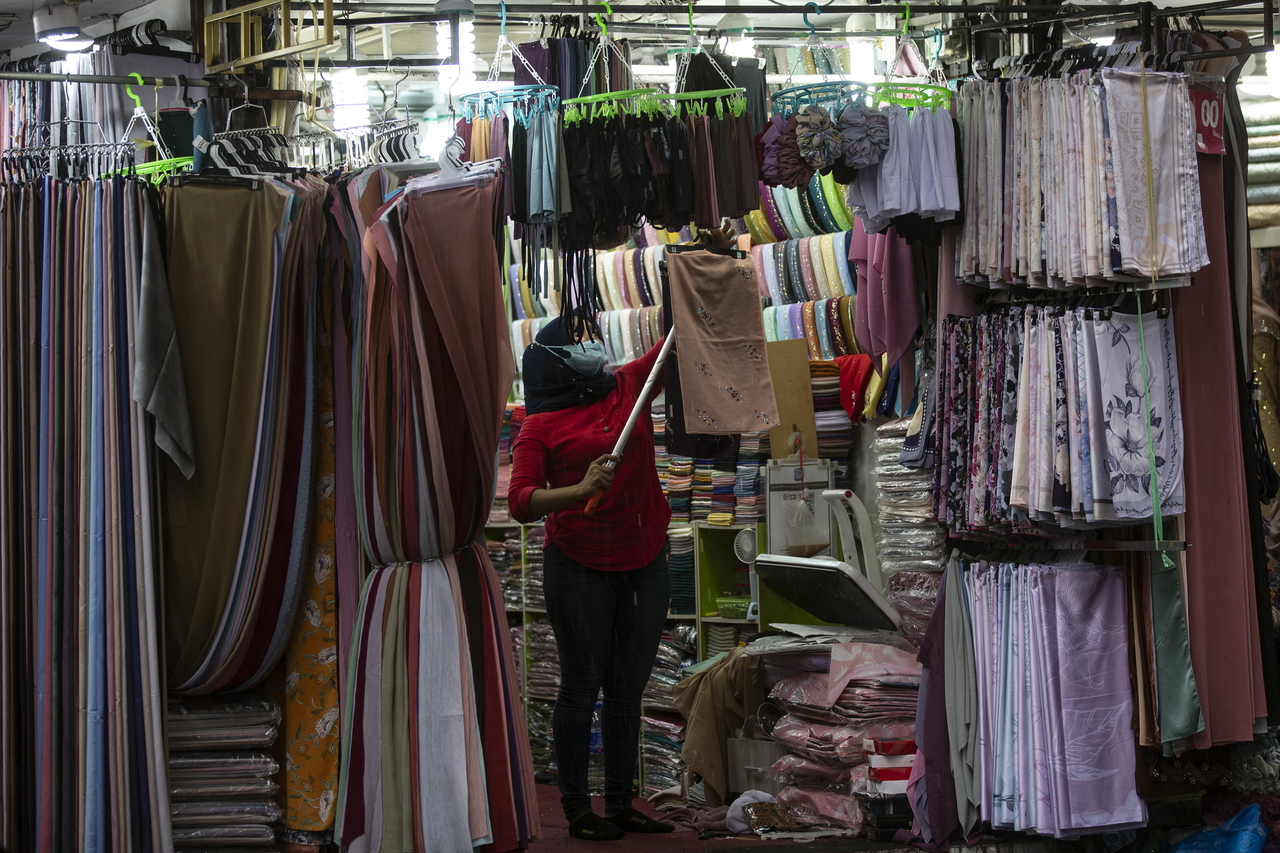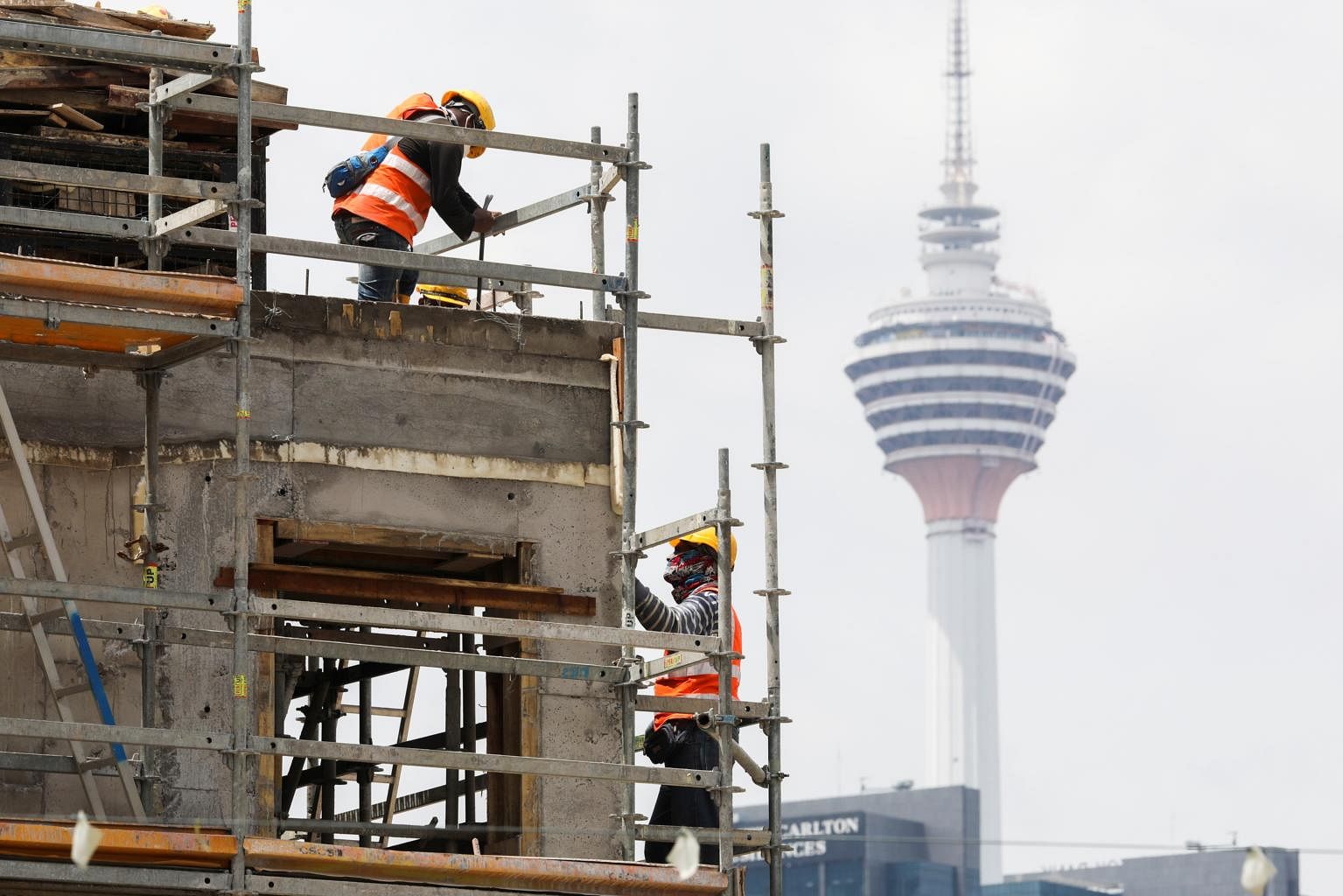Malaysia faces manpower shortage in critical sectors despite high unemployment rate
Sign up now: Get insights on the biggest stories in Malaysia

Malaysia's overall unemployment rate is at 4.6 per cent, according to the Department of Statistics Malaysia.
PHOTO: EPA-EFE
KUALA LUMPUR - Malaysian Aditya Akasha, 27, spent eight months working as a construction worker before quitting.
Mr Ram Singh, 25, quit his job as a quality control inspector four months after joining the manufacturing sector.
Both men left their respective industries when employers in such critical sectors urgently required workers after more economic activities were permitted to resume.
Textile factory owner Wan Imran Alim said he has been struggling to retain his local workers but has had "no such luck".
"They come and go and don't seem serious enough to keep the job despite the (Covid-19) pandemic leaving thousands unemployed," he told The Straits Times.
The shortage of manpower in critical sectors is due to several reasons, namely the expiration of foreign workers' permits and the alternating "open and shut" orders issued during the pandemic, National Chamber of Commerce and Industry of Malaysia president Low Kian Chuan said recently.
He added that the number of migrant workers is now at 1.1 million - down 800,000 from 1.9 million in 2018, leaving a vacuum in the workforce.
In June last year, Human Resources Minister M. Saravanan announced a freeze on the new intake of foreign workers until the end of 2020, which was intended to reduce their numbers as well as give locals priority in securing employment. The freeze was later extended to the end of this year.
Though many jobs in critical sectors are not filled, Malaysia's overall unemployment rate is 4.6 per cent, according to the Department of Statistics Malaysia. While this is an improvement from the highest rate of 5.3 per cent in May 2020, the government aims to reduce it further to 4 per cent next year.
It said on Friday (Oct 29) that it would allocate RM4.8 billion (S$1.5 billion) in Budget 2022 to provide 600,000 employment opportunities under the "JaminKerja" (job guarantee) initiative.
Although the job creation for locals is welcomed, some say many sectors rely on foreign workers to fill "3D jobs", referring to work deemed as dirty, difficult, and dangerous.
"While the Malaysian Employers Federation (MEF) supports the efforts to reduce dependence on foreign workers in certain sectors, the government should address this complex matter on the (wider) sectoral level as many sectors also depend on foreign labour apart from the plantation and construction sectors," MEF president Syed Hussain Syed Husman told ST.
He said the government should reconsider its policy to extend the freeze on foreign workers recruitment until Dec 31.
Like in Singapore, the 3D jobs are shunned by locals in Malaysia, said Datuk Hussain, but the impact is greater, as many industries rely on foreign labour.
"The unskilled and lower-skilled jobs in the manufacturing and restaurants operations are not attractive to the locals even though the salary package is good. It's more to do with the social status of such jobs and the environment of such workplaces," he added.
But Mr Aditya disagreed.
Originally from Selayang, a town in Selangor, he said he was willing to take up any 3D job as long as it was stable, but it takes more than a good salary package to retain an employee.
"I contracted Covid-19 at work but instead of providing aid, my former employer decided to cut RM300 from my salary. I didn't mind the hard labour, as beggars like me can't be choosers, but I would have stayed if the employer was fair," he told ST. He now works as a security officer in Selangor.
Mr Singh, now working as server at a restaurant in Taiping, Perak, said: "It's not just the social standing. For me, it's mainly how my colleagues and I were treated. We know a 3D job isn't glamourous but perhaps because of that, some employers think it's okay to treat their workers harshly."

Malaysian Trades Union Congress deputy president Mohd Effendy Abdul Ghani told ST there is no reason why Malaysians would hesitate to join the critical sectors if they were offered fair pay and a conducive environment.
"I don't agree when people say Malaysians are picky when it comes to choosing a job. I can't deny that there are some sectors which really require migrant workers, but at the same time, there are many locals who would take up any job, including 3D ones, even if it has nothing to do with their qualification," he said.
"But if the environment is not conducive and they have to survive on a minimum wage of RM1,200 to RM1,500 in the coming 10 years... that isn't fair, especially when many are overqualified for the job."


